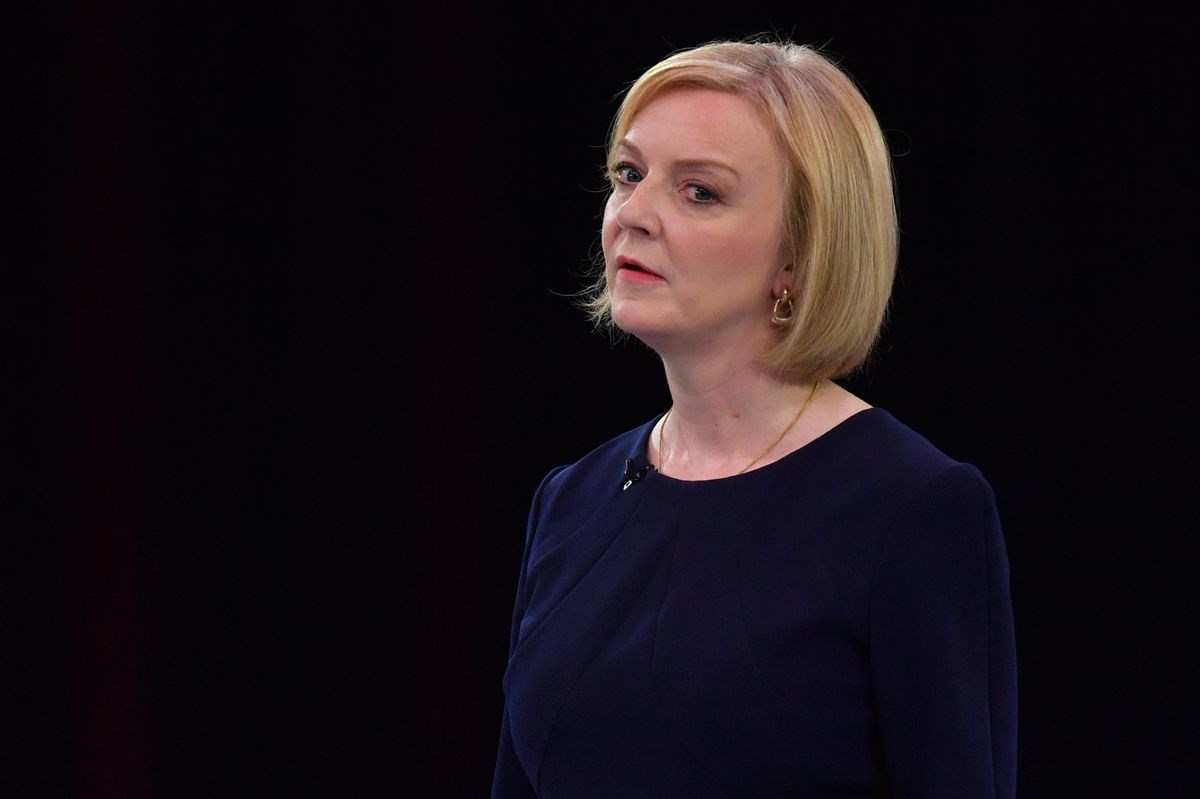Truss losing to Starmer in tax-cutting policy catastrophe
Unless Truss changes her economic policies, the UK will suffer devastating consequences, which is pushing many to turn towards the Labour party.
-

Liz Truss. (Bloomberg)
Tories in senior positions within the party are warning that the Conservative Party will suffer severely if a Liz Truss premiership fails to address the current cost of living in the UK, at a time Labour is enjoying a rebound with Keir Starmer gaining popularity for the coming elections.
A number of Cabinet Ministers on Saturday told the Observer that the party will suffer devastating losses unless Truss changes her economic policies as panic mounts in London.
Conservative MP Michael Gove announced his support for Rishi Sunak after calling Truss' plan to cut taxes a "holiday from reality."
Read next: Sunak, Truss try appealing to Zionist voters, make no promises
On the other side, Labour and its leader have been enjoying higher numbers as of an Opinium poll in the Observer - its biggest lead in months -, particularly after Starmer supported a complete freeze on energy bills this autumn.
Two weeks back, 29% of all voters said Truss would be the best prime minister, while 28% chose Starmer. However, this weekend, Truss' popularity dropped to 23% while Starmer rose to 31% in score.
However, when it came to Starmer versus Sunak, Starmer scored 20% while Sunak scored 23%.
On Saturday, a YouGov poll - a poll which usually gives Labour more leverage than Opinium - conveyed the Labour party as enjoying its biggest lead in 10 years, reaching 43% in votes, whereas the Conservative party got 28%.
Truss has suggested that she will use tax cuts to boost the economy despite that economists and her Conservative colleagues are warning that this will only stoke and embed inflation in the country.
Tory chancellor Kenneth Clarke criticized Truss for the suggestion, arguing: "This is not a time for tax cuts because we have enormous public debts. Tax cuts will stimulate growth in demand, but the problems are with the difficulties in supply, so they will push inflation further up.”
Gove, furthermore, is arguing that Truss' tax-cut suggestion will benefit those least in need, and put the poorest at a severe disadvantage: “The answer to the cost of living crisis cannot be simply to reject further ‘handouts’ and cut tax. Proposed cuts to national insurance would favour the wealthy, and changes to corporation tax apply to big businesses, not small entrepreneurs.
“I cannot see how safeguarding the stock options of FTSE 100 executives should ever take precedence over supporting the poorest in our society, but at a time of want it cannot be the right priority.”
Another former minister, who is in support of Sunak, said, “If Liz does not change tack and back a real economic package that does more to help those in need, I think we will be in big trouble. But to do so she will need to go back on what she has said in the leadership campaign, which will not be without consequences either.”
Clarke also addresses the coming recession that will only be exacerbated by Truss' tax policies, arguing that the UK, under Truss, will only fall into a further case of a desperate economic situation.
“I’ve felt for some time that we’re bound to have a very severe recession. And if we’re not careful, it’s going to be combined with very bad inflation, which does social, as well as economic, damage. Living standards generally are going to fall for the first time for a long time, and the main short-term measures should be to stop us seeing any increase in the number of people becoming destitute in this country. The government shouldn’t be asking themselves, what is the Daily Mail going to be saying tomorrow, but what is the economy going to look like in a couple of years’ time when we have an election?”
Global inflation is soaring, with the UK's accelerating at the fastest pace in 40 years in July, reaching double-digits and adding more pressure on the Bank of England.
Last month, the consumer price index boosted up 10.1% on an annual basis, surpassing the FXStreet-cited market consensus of 9.8% and speeding up from 9.4% in June.
The last time inflation was this extreme was in 1982 - 40 years ago.
Two weeks ago, the Bank of England (BoE) predicts by the end of 2022 to enter a long recession for at least a year's time. Currently, Britons are faced with staggeringly high costs of living as they overcome the worst inflation they have witnessed in decades.

 5 Min Read
5 Min Read








